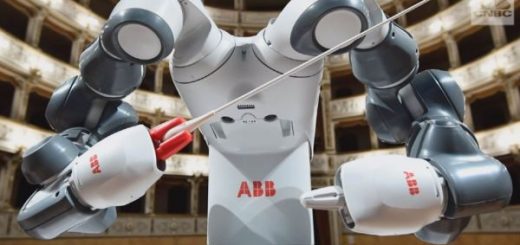Artificial intelligence in medical field advantages and how AI medical diagnosis changes medicine
Artificial intelligence uses computer techniques to perform clinical diagnoses and suggest treatments, It can detect meaningful relationships in a data set, It has been used in many clinical situations to diagnose, treat, and predict the results, AI can analyze data, notes & reports from the patient’s file, external research, and clinical expertise to help select the correct, individually customized treatment path.
Medical artificial intelligence (AI)
AI in medicine means tasks are completed more quickly, and it frees up a medical professional’s time, so, he can perform other duties that can’t be automated, Artificial intelligence can manage medical records and other Data, Robots can collect, store, re-format, and trace data to offer faster & more consistent access, Data management is the most widely used application of artificial intelligence and digital automation.
Medical artificial intelligence refers to the use of AI technology / automated processes in the diagnosis and treatment of patients who require care, Medical records are digitized, appointments can be scheduled online, and patients can check into health centers or clinics using their phones or computers.
AI is used for collecting data through patient interviews and tests, Processing and analyzing results, Using multiple sources of data to come to an accurate diagnosis, Determining an appropriate treatment method, Preparing and administering the chosen treatment method, Patient monitoring & Aftercare, follow-up appointments etc.
Advantages of AI in medicine
AI is used in medicine to reduce manual tasks and to free up of physician’s time, It reduces human error, it increases efficiency & productivity, it presents the opportunity for us to move towards more ‘precision medicine’, Masses of data can be collected and analyzed very quickly.
AI/ML technology is used in health care, It can help doctors with diagnoses and tell when patients are deteriorating so medical intervention can occur sooner before the patient needs hospitalization, It can save costs for both the hospitals and patients, The precision of machine learning can detect diseases such as cancer sooner, thus saving lives.
Artificial intelligence takes the data from patients to help improve patient outcomes, It improves reliability, predictability, and consistency with quality and patient safety, AI will increase efficiency, It improves human performance, It is used as a decision augmentation tool, While it can’t replace doctors & nurses, it can make them more effective, efficient and happier on the job which increases confidence as well as reduces stress & anxiety.
Malignant tumors tend to mutate, grow, evolve and change, scientists discovered that not only cancer itself transforms but so does its DNA, As sequencing costs dropped, the genetic analysis of tumors became possible, human experts with the support of computational tools started to analyze the data to figure out what kinds of genetic changes, or mutations, occur.
Machine learning can automate the tumor DNA diagnostic process and improves the accuracy of identifying mutations in cancerous tissues, so, the doctor can choose the specific targeted treatment for the patient, AI helps in more precise skin cancer diagnoses, AI can spot cancer & vascular diseases early and predict the health issues people might face based on their genetics.
AI can highlight mistakes in treatments, and workflow inefficiencies, and help area healthcare systems avoid unnecessary patient hospitalizations, AI can help us more efficiently diagnose diseases, develop drugs, personalize treatments, and edit genes, but AI can’t offer- judgment, creativity, and empathy.
AI outperforms doctors when it comes to classifying, and predicting outcomes based on various factors, AI can scan patients’ routine medical data and predict which of them would have heart attacks or strokes within 10 years, When compared to the standard method of prediction based on well-established risk factors such as high blood pressure, cholesterol, age, smoking, and diabetes.
So, especially bearing in mind that early diagnosis means saving lives when it comes to lethal diseases, the joint efforts of AI and human doctors indicated a significant improvement in diagnosing, their single results were not even close, AI can predict death risk among inpatients, the algorithm can flag still-living patients in a hospital’s system that might be appropriate candidates for palliative care.
Applications of Artificial intelligence in the medical field and& Healthcare
The importance and uses of robots in medicine
Robotic surgery cons, pros, uses and How does robotic surgery work?
Importance of Artificial intelligence in healthcare and medicine
Surgical robots types, advantages, disadvantages, How is robotic surgery different from traditional
Robotic Surgery vs. Laparoscopic Surgery, Robot assisted surgery features, benefits & drawbacks



